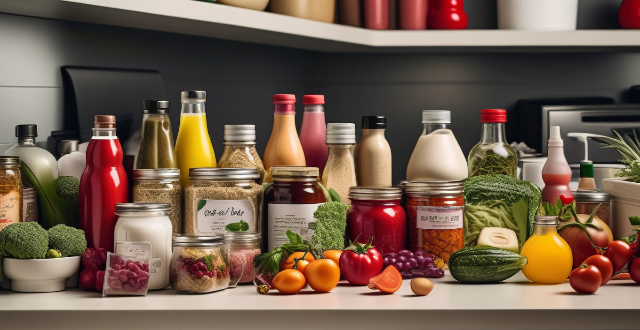To reduce food waste in your kitchen, you can plan meals ahead of shopping, shop smart by making a list and buying fresh produce, store foods properly using airtight containers, understand expiration dates, preserve food through techniques like freezing and dehydrating, get creative with leftovers, practice portion control, and educate yourself on the environmental impact of food waste.

How Can I Reduce Food Waste in My Kitchen?
1. Plan Ahead
- Meal Planning: Before you shop, plan your meals for the week. This helps you buy only what you need and prevents impulse purchases that may go to waste.
2. Shop Smart
- Make a List: Stick to your meal plan and create a shopping list. Avoid buying unnecessary items that might spoil before you can use them.
- Buy Fresh, Not Excess: Only buy what you know you will consume before it goes bad. For fresh produce, consider buying from local farmers' markets where the turnover is higher and the produce often fresher.
3. Proper Storage
- Know Your Storage Options: Different foods require different storage methods to last longer. Keep fruits and vegetables in appropriate places—some need to be refrigerated, others should be kept at room temperature.
- Use Airtight Containers: Store dry goods like grains, pasta, and cereals in airtight containers to keep them fresh longer and prevent pests.
4. Understand Expiration Dates
- Distinguish Between "Sell By," "Best By," and "Use By:" These dates are not always expiration dates but rather indicators of quality. Many foods are still good after these dates if stored properly.
5. Preserve What You Can
- Learn Preservation Techniques: Freezing, canning, and pickling are great ways to extend the life of foods that are close to going bad.
- Dehydrating: Dehydrate fruits, vegetables, and even meats for long-term storage with minimal space requirements.
6. Get Creative with Leftovers
- Leftover Cooking Challenge: Turn yesterday's meals into new dishes. For example, leftover roasted chicken can become a chicken salad or a chicken stir-fry.
- Composting: If some food truly cannot be saved or used, consider composting to reduce waste further.
7. Portion Control
- Serve Smaller Portions: This reduces the likelihood of uneaten food ending up as waste.
- Save Leftovers Effectively: Use portion-sized containers for leftovers to avoid reheating more than you'll eat.
8. Educate Yourself
- Learn About Food Waste: Understanding the environmental impact of food waste can motivate you to take action in your kitchen.
- Share Knowledge: Encourage family members to get involved and understand the importance of reducing food waste together.
By incorporating these practices into your routine, you can significantly reduce food waste in your kitchen, saving money and contributing to a healthier planet.